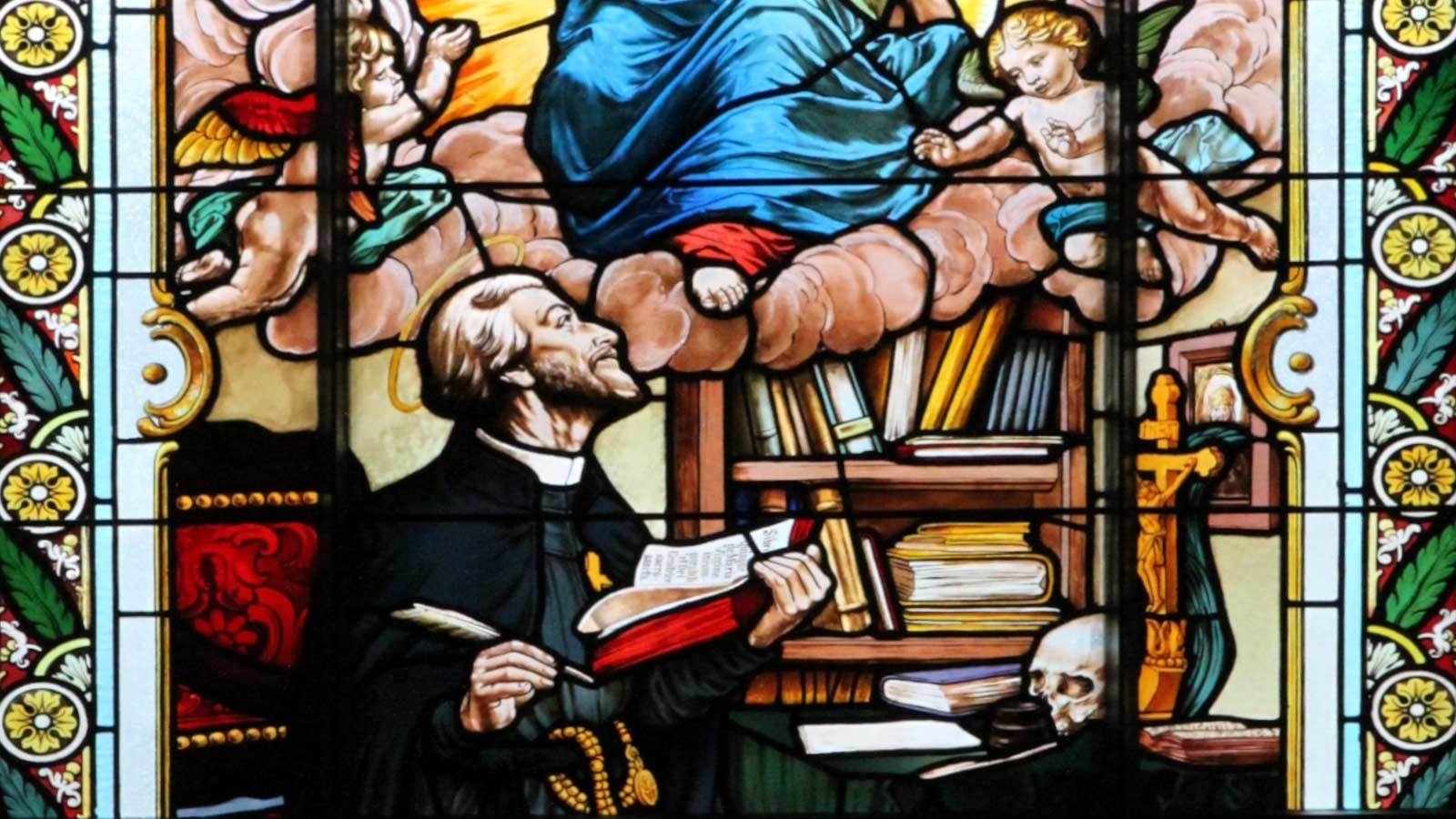
TOPICS:
Saint Peter Canisius
Jul 24, 2015 / Written by: America Needs Fatima
Feast December 21
St. Peter Canisius is rightly considered the second apostle of Germany after St. Boniface.
Peter Kanis – his name was later Latinized to “Canisius” – was born in Nijmegen, Holland, then a German province of the archdiocese of Cologne. He originally thought of becoming a lawyer to please his father, a wealthy public official, but after a retreat directed by St. Peter Faber, one of the first companions of St. Ignatius of Loyola, the young Canisius decided to become a Jesuit.

Shortly after his ordination to the priesthood, he accompanied the Bishop of Augsburg to the Council of Trent and attended two sessions of the Council as a delegate. He was later summoned to Rome by St. Ignatius who retained him by his side for five months.
In response to an appeal by Duke William IV of Bavaria for Catholic professors capable of countering heretical teachings then permeating the schools, after his solemn profession, Peter Canisius was sent to Germany with two other brother Jesuits.
From then on Peter Canisius spent his life helping people in Germany, Austria, Bohemia, Moravia and Switzerland to hold firmly to their Catholic Faith in opposition to the errors of the Protestant reformation then spreading throughout those countries. The restoration of the Catholic Faith in Germany is largely due to the work of the Jesuit fathers which Canisius led.
He combined powerful preaching, with teaching and ceaseless works of charity.
In Austria, he at first preached to almost empty churches, partially due to his Rhineland German which grated on the ears of the Viennese. But his tireless ministrations to the sick and dying during an outbreak of the plague, won the citizens’ hearts, after which his accent was of little importance.
The king, the nuncio and even the Pope wished to appoint him to the vacant see of Vienna, but St. Ignatius would only allow him to administer the diocese for a year without episcopal orders. It was at this time that St. Peter began work on his famous catechism, Summary of Christian Doctrine.
Appointed to Prague, he practically won the city back to the Faith. The college he established in the city was so highly regarded for its excellent academics that even Protestants sought to send their sons to it. During this time he was also made Provincial Superior of the Jesuit Order for an area covering Czechoslovakia, South Germany, Austria and Bohemia.

Not only did Peter Canisius found several colleges, but prepared the way for many others. He also wrote extensively throughout his life. His books were catechetical, instructional, historical and apologetic, refuting the errors of Protestantism.
Canisius was already advanced in age when he was instructed to found a college in Fribourg, Switzerland, capital of the Catholic canton, sandwiched between two powerful Protestant neighbors. Surmounting all obstacles, including numerous financial difficulties, St. Peter founded a university operative to this day. The preservation of the Catholic faith in Fribourg in a critical time of its history can be confidently attributed to him.
Increasing bodily illness obliged Peter Canisius to give up preaching. In 1591 he suffered a paralytic seizure which brought him near death, but recovering sufficiently, he continued writing with the help of a secretary until shortly before his passing on December 21, 1597.
Peter Canisius was simultaneously canonized and declared a Doctor of the Church in 1925 by Pope Pius XI.
